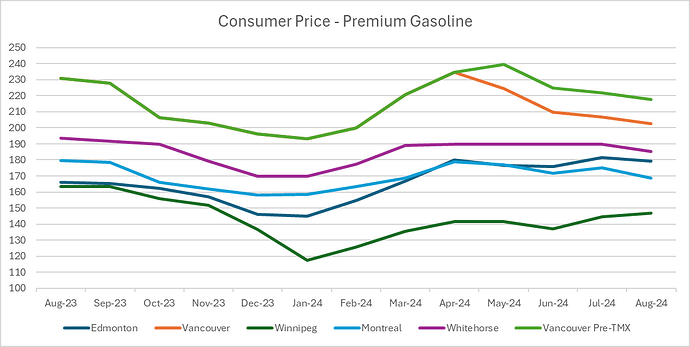The issue is that private healthcare can exist in Canada, but it’s very expensive, and so is private “full coverage” insurance. Because it has to compete with “free.”
So what a lot of people want is to have doctors, clinics, labs, to be able to do both “public” and “private” work at the same time.
This is problematic, because it means people want the public taxpayers to effectively subsidise private health care.
I 100% agree, I’m not suggesting that public funding “should” subsidizes a private health care system. I have asked though, if it was subsidized at a cost that was LOWER than outright funding it themselves, how is it detrimental to the public system?
I’m only suggesting that the private sector could, or, has brought in more doctors, employees, lab equipment, etc than we may otherwise have access to with the same level of funding from JUST public funding. Is that, or, is that not that case?
Whether or not any current public subsidies being paid to private heath care result in more or less cost than the public system purchasing this on their own, I have no idea. If it doesn’t not, then perhaps private health care should GO AWAY if it is indeed detrimental to the overall care that can be provided by the public system for the same amount of spending.
You can’t get a private clinic or private hospital to be profitable, because it has to pay doctors, nurses more than they would get working for the public system.
Access to private health care might not be the answer if in the end if it is unable to supplement the public system at a reduced cost. Simply, if private health care costs the public system MORE money without reducing wait times or providing a valuable supplement of doctors and equipment. I have a hard time understanding how a system that is primarily operated under private funding could be reducing the effectiveness or increasing the cost to the public system, while providing less care, but that seems to be what you and chien22 are suggesting. Is that the case?
Alternatively - if we closed all private clinics tomorrow and allowed the BC public health system to hire on the doctors and purchase the equipment and staff from these private hospitals to run under their own budget, would that increase or decrease the cost of public funding required to maintain the current level of care from BOTH private and public health systems?
If it all boils down to the reality that we actually need to be spending more public funds on health care, (and education, etc), then why do we purposely make it difficult for large industrial projects that could completely fund these services and create more high-paying jobs to fail? Why do we depend on individual taxation rather than creating alternative means of government revenue?
Was it not seen as a failure that the Liberal government was forced to purchase the pipeline from Kinder Morgan in order to get it approved, and it was still attempted to be blocked by environmental groups and the courts? Now that IT IS built it will bring in billions of dollars in government revenue, add billions to our GDP and may more billions in wages. As I see it, this kind of infrastructure is crucial to the success of the country and the funding of services such as health care and education. Why is the regulatory process setup to fail these projects?
We can see on both the NDP and Conservative platforms, they’re pushing to reduce the red-tape and fast track approval of mining in Northern BC, whereas the Greens want to walk this back. This shows the two parties that have the majority of the vote understand that the process of project approval in this province need to be overhauled. This isn’t dissimilar from the NDP saying they’re essentially going to force through housing projects to ensure they’re built in a timely manner and to a specification they feel will create lower cost homes. I agree with what the NDP is offering here as far as reform of policy that needs it.
That’s why private medical tourism is usually in places where you can pay doctors and nurses a lot less than they would make here.
I also agree that private medical tourism is usually in places where doctors and nurses are paid less than they would make here. Perhaps we need to figure out why doctors and nurses would prefer to live and work in somewhere like Istanbul, instead of Vancouver, Kamloops, Prince George or Prince Rupert. How much do they need to be paid to attract them here, and can the public system afford it?
Can we reduce the cost of public health care by reducing the amount of management, and increasing the amount of doctors and nurses without any additional costs?
If you think private health care would be profitable, then you’re more than welcome to set up a hospital, or a clinic. These already exist. But you shouldn’t expect the public to subsidise the salaries of your employees, or of your lab equipment, or whatever.
Again, not suggesting the private sector is further (if at all) subsidized by public funding (unless it’s beneficial to the public system). I’m not sure what I’ve written to suggest that’s where I stand, after repeatedly saying otherwise to clarify. At this point it seems both of you are suggesting that private health care in BC is heavily subsidized by the government and it’s degrading the level of care and amount of health professionals British Columbians would otherwise have access to if the same amount of public spending was focused only into the public system, is that accurate or not?
Reducing the cost of living could attract doctors without needing to increase the salaries. Increasing Canada’s GDP from oil and gas exports, mining, forestry or otherwise can increase government revenue that could be spent on hiring more doctors, teachers, etc. It doesn’t need to be a tax payer based system.
Doctors are going to be on the higher end of the pay scale and we’re saying we’re going to tax them more on their income, on their homes and even charge them more for a speeding ticket. That’s all counter-intuitive to me. If you want these professionals to move to Canada and stay here, we shouldn’t be increasing their cost of living to the point they’ll leave or seek higher wage from a private hospital for example. There is a doctor in Kamloops moving back to South Africa shortly she says is due to the cost of living there - that shouldn’t be a decision her family should feel they need to make.
Why should taxpayers have to subsidise for-profit private health care?
This is the playbook, though, right? Public Risk, Private Profit.
The reverse question should be asked – why can’t a private clinic pay for its own doctors and equipment?
If that is the current playbook, I also don’t agree with it. Usually in private anything it’s private risk first and foremost.
They shouldn’t need to subsidize for-profit private health care, at all. I absolutely have not said that, nor do I agree with it. If something I have written gives that assertion, it isn’t what I’m trying to convey, or ask.

